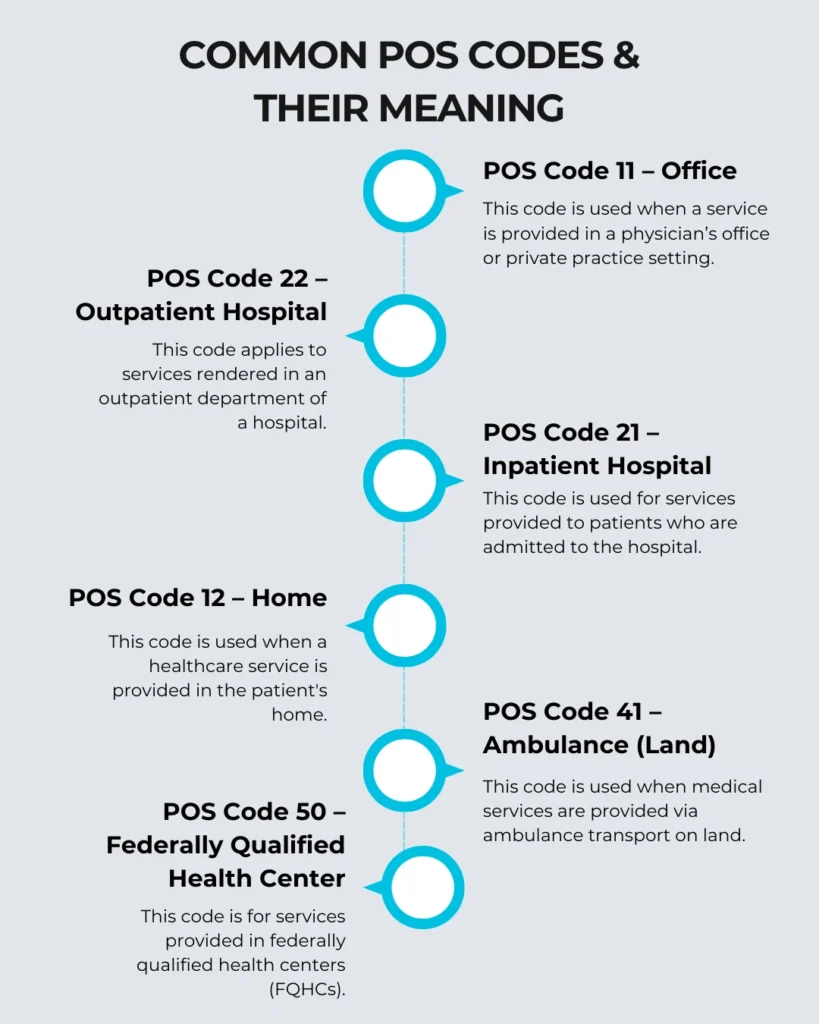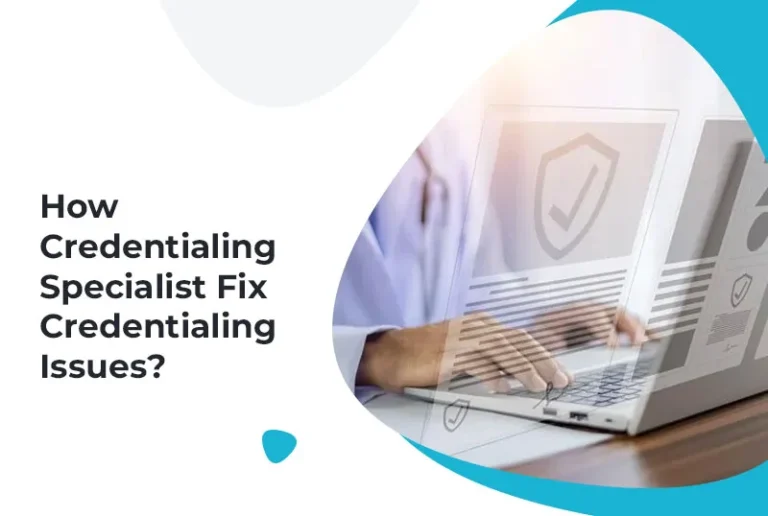The Point of Service (POS) Code is an essential element in the world of medical billing. It determines the location of healthcare services, which plays a crucial role in claim processing, reimbursement, and insurance validation. Understanding POS Codes is vital for healthcare providers, billing professionals, and administrators.
Whether you’re a healthcare provider, billing specialist, or just curious about how POS Codes influence medical billing, this article will provide valuable insights.
What Is a POS Code?
A POS Code is a numeric code used in Medical billing coding to indicate where a healthcare service was provided to a patient. This code is part of the claim submitted to insurance companies and is essential for the accurate processing of payments. It helps to identify the setting of care—whether it was in a hospital, clinic, outpatient facility, or at the patient’s home.
The Importance of POS Codes in Medical Billing
The POS Code is important because it affects reimbursement rates, the payer’s processing procedures, and claims acceptance. Insurance carriers and Medicare use the POS Code to determine the appropriate reimbursement for a healthcare service.
Incorporating the correct POS Code is also critical for compliance with healthcare regulations. Using the wrong code can result in delayed payments, audits, and even penalties. Healthcare providers must understand how these codes work and ensure that billing specialists or administrators are trained to handle them correctly.
For practices looking for a smoother billing process, leveraging billing services medical for small practices can be a game-changer. These services help ensure that POS Codes are accurately used, thus optimizing the claims process and improving overall revenue cycle efficiency.
How POS Codes Impact Medical Billing
POS Codes have a significant impact on various stages of medical billing:
1. Claims Submission
When submitting a claim to an insurance company, the POS Code helps specify the location of service. The right code tells the insurer whether the service was inpatient, outpatient, at a physician’s office, or in another setting.
2. Reimbursement Rates
Insurance companies use POS Codes to calculate reimbursement rates. The rates differ based on where the service was provided. For example, services provided in a hospital may receive a different reimbursement rate than those provided in a private office or outpatient setting.
3. Insurance Verification
POS Codes also help insurance companies verify the care setting for a specific service. This ensures the accuracy of the claim and speeds up the processing time. If the POS Code doesn’t match the patient’s records, the insurance company may reject the claim.
4. Billing Compliance
Medical billing services and healthcare providers must comply with POS coding guidelines to avoid legal and financial penalties. Incorrect usage of POS Codes can lead to audits, which may result in overpayment demands or legal repercussions.
For efficient management of medical claims, incorporating Revenue cycle management services strategies into your practice is vital.
Common POS Codes and Their Meaning
Understanding the most commonly used POS Codes in medical billing can help healthcare providers accurately code their claims. Here are some examples of POS Codes:

There are many other POS Codes, and each corresponds to a specific setting. It’s essential to know the correct code for the services rendered to avoid errors in billing and ensure proper reimbursement.
How to Avoid Common POS Code Errors
1. Double-Check the Setting
Always ensure that the setting where the service was provided is correctly identified. This is one of the most common sources of error in medical billing.
2. Stay Updated on Changes
POS Codes may change over time as the healthcare industry evolves. Providers and billing specialists need to stay informed about these changes to avoid using outdated codes.
3. Train Your Staff
Training your billing team on POS Codes is essential. Understanding how each code works and the consequences of choosing the wrong one can prevent costly errors.
For practices looking to outsource their billing tasks, working with a partner offering professional credential services can ensure that your team is trained in using POS Codes correctly. Professional credential services help streamline operations, reduce errors, and ensure that billing is compliant with industry standards.
POS Codes and Medicare
Medicare requires healthcare providers to use the correct POS Code for all services provided to Medicare patients. Failure to use the correct code can result in claim denials or reduced reimbursements. Since Medicare has strict guidelines for service locations, it’s crucial to be precise with POS Codes when dealing with Medicare patients.
In addition to POS Codes, Medicare also requires specific modifiers that may accompany certain codes. These modifiers further specify the nature of the service or the circumstances under which the service was provided.
The Role of POS Codes in Telemedicine
With the rise of telemedicine, the usage of POS Codes has expanded. Telemedicine services can now be provided in various settings, including the patient’s home or a provider’s office. Medical professionals must use the correct POS Code when submitting claims for telemedicine services to ensure proper reimbursement.
How to Leverage POS Codes for Efficient Medical Billing
To maximize your revenue cycle management and reduce errors, it’s important to leverage POS Codes correctly. Here are a few tips:
- Ensure consistency: Always use the same POS Code across the claim for consistency and accuracy.
- Use automated billing tools: Invest in billing software that automatically assigns the correct POS Code based on service location.
- Consult with experts: When in doubt, consult with medical billing services or professionals who specialize in Revenue Cycle Management to guide you through the process.
Conclusion
POS Codes are an essential part of the medical billing process. By understanding how to use POS Codes correctly, healthcare providers can avoid costly errors, ensure compliance, and maximize reimbursements.
For small practices looking to streamline their billing processes, medical billing services for small practices offer professional support in managing POS Codes and other billing-related tasks. Additionally, investing in Revenue Cycle Management strategies and professional credential services can help healthcare providers optimize their operations and reduce the chances of claim rejections.
FAQ Section
Q1: What happens if I use the wrong POS Code in medical billing?
If the wrong POS Code is used, the claim may be delayed, rejected, or reimbursed at a lower rate. It’s essential to use the correct POS Code to avoid these issues.
Q2: How often do POS Codes change in medical billing?
POS Codes are updated periodically to reflect changes in healthcare delivery. It’s important to stay informed about any updates to ensure accurate billing.
Q3: Can telemedicine services use POS Codes?
Yes, telemedicine services use specific POS Codes, such as POS 02, to identify the location of service and ensure proper billing and reimbursement.







